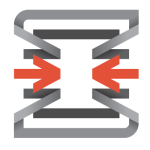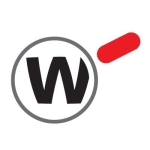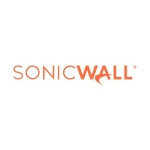What is our primary use case?
We support various clients in the government sector in Mexico. We provide different solutions in terms of network security, data security, and perimeter security. The NGFM Firewall is available locally and different offices and/or institutions of the government sector pass through a more secure and controlled infrastructure.
This type of infrastructure has different zones or areas that are managed and keeping them centralized has helped us to maintain and control them. In addition, we are generating fast and safe solutions for our users on each site.
How has it helped my organization?
Check Point has provided us with an easier way to control all of the access traffic for more than 50 segments that we have within the organization. In addition, we have been able to maintain stricter control of the users and/or equipment that are had in all the institutions that make up the government sector of the entity.
Check Point technology has allowed us to keep the organization and distribution of the network in order within the institution. In addition, the VPN service we have has worked correctly for users who want to work remotely from their homes, which was of great help during the pandemic.
What is most valuable?
Within the organization, the inspection of packages has given us great help in detecting traffic that may be a threat to the institution.
The configuration of policies has allowed us to maintain control of access and users for each institution that is incorporated into our headquarters. It is well organized.
Some other of the services that have worked well for us are antivirus, anti-bot, and URL filtering. Together, these have allowed us to maintain control and organization amongst the users.
Another one of the pluses that have helped us a lot has been the IPsec VPN, especially in these times of pandemic.
What needs improvement?
Using the tool is somewhat complex when teaching new staff, although after practice it is quite easy to get used to this technology.
One of the improvements that could be included is to have a help menu to obtain advice or help for the different options that are presented in the application.
The equipment is complex, so you need guidance from specialized people or those who constantly work with Check Point. Better forums and information manuals could be provided so that users from different institutions can have more access to the information.
For how long have I used the solution?
The company has been using the Check Point NGFW for more than four years.
What do I think about the stability of the solution?
Compared to other networking equipment I have used, I would say that Check Point's NGFW is just as stable. We rarely have problems, and they can all be properly fixed without affecting productive or critical network elements.
What do I think about the scalability of the solution?
There are currently more than 5,000 users within government facilities in Mexico. This team has provided us with the necessary resources to provide services to users in record time.
With the teams that we currently have, we have not considered increasing the number of technicians. If the need should arise then Check Point is still a very good option.
How are customer service and technical support?
Technical support has been available when we have problems, and they are always there to help us get back up and running as quickly as possible. In addition, the equipment is kept up-to-date with the latest versions, or alternatively, those recommended by the provider.
Which solution did I use previously and why did I switch?
This solution was deployed before I entered this governmental organization. What I have heard is that prior to this, the security and segmentation control was not ideal and they wanted to improve it. With the implementation of Check Point, great improvements have been provided to the infrastructure, maintaining order within the organization.
How was the initial setup?
When I entered the company, the equipment was already installed. With the passage of time, some configurations have been improved and some extra services have also been achieved for mobile users.
What about the implementation team?
It was implemented through a provider that has been guiding us towards the correct use of the equipment and the best practices to keep it updated. The service has been excellent, both in common day-to-day ticketing situations, including the most serious incidents.
What was our ROI?
It has been well worth the investment, as the Check Point technology is there to help when we need it.
What's my experience with pricing, setup cost, and licensing?
One of the main reasons that Check Point is used is that it helps us to administer security at a reasonable price. This is naturally in addition to meeting the expectations of the institution.
An annual technical support fee is paid to maintain the equipment with the most updated licenses and versions and thus avoid vulnerabilities
Which other solutions did I evaluate?
Check Point is the option that has always been considered for its good firewall organization, which allows us to have excellent security.
What other advice do I have?
My advice is to always have a supplier with whom you can resolve doubts or more specific technical questions. Since the equipment requires many very technical parameters, it is helpful to have a person who understands and uses this technology correctly.
Which deployment model are you using for this solution?
On-premises
If public cloud, private cloud, or hybrid cloud, which cloud provider do you use?
Other
Disclosure: My company has a business relationship with this vendor other than being a customer.













